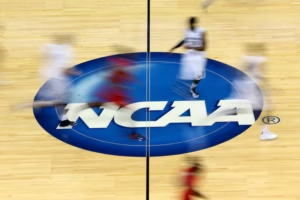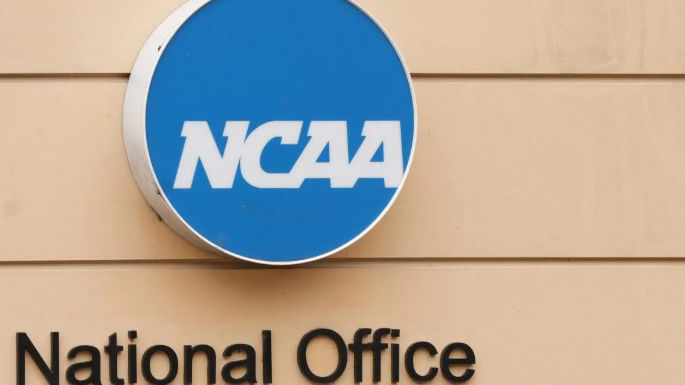NCAA Policy Revamp Empowers Power Four Conferences — A Governance Shift Reshaping College Basketball

NCAA grants ACC, Big Ten, SEC, and Big 12 a combined 65% voting power in restructuring governance — set to alter college basketball’s decision-making landscape.
 The NCAA Division I Board approved a sweeping governance overhaul, granting the Power Four conferences—ACC, Big Ten, Big 12, and SEC—a commanding 65% weighted voting share across its major oversight committees. This includes rulemaking bodies for men’s and women’s basketball, football, and several other key sports. The changes streamline decision-making and elevate efficiency, but critics warn they dilute broader Division I representation.
The NCAA Division I Board approved a sweeping governance overhaul, granting the Power Four conferences—ACC, Big Ten, Big 12, and SEC—a commanding 65% weighted voting share across its major oversight committees. This includes rulemaking bodies for men’s and women’s basketball, football, and several other key sports. The changes streamline decision-making and elevate efficiency, but critics warn they dilute broader Division I representation.
The streamlined model reduces the number of committees from 44 to 30, increases student-athlete representation, and ensures sports-specific coaching voices are featured on relevant oversight panels.
 Fragments of the Power Four influence include the Big East retaining weighted representation on men’s basketball committees—reflecting its historical presence in hoops—though championship access and financial distributions remain untouched.
Fragments of the Power Four influence include the Big East retaining weighted representation on men’s basketball committees—reflecting its historical presence in hoops—though championship access and financial distributions remain untouched.
Even though none of the conferences achieved the 17% share initially sought, the final allotment (16.1% each) means any one power conference can potentially stall proposals absent support from a smaller conference.
Why This Matters for Bettors and Fans
For fans, this marks a tectonic power shift—major conferences now could influence scheduling, NIL policies, and sport-specific rules with fewer checks.
For bettors, this could shape future tournament structures, eligibility rules, and NIL dynamics—factors that may subtly tilt betting markets.
Takeaways for Bettors
Benefits:
Predictability: Power Four consensus backing could stabilize rule environments and season structure.
Influence on Tournament Format: Key decisions like bracket composition or regional setups may reflect Power Four priorities.
Drawbacks:
Reduced Upset Potential: Smaller schools may face systemic disadvantages, affecting upset and futures markets.
Governance Monopoly: Rapid shifts in rules favored by Power Four may unsettle long-term betting models.
Line Movement Insights
Early Movement: Sharp bettors could capitalize on early schedule or format changes—like directional shifts in tournament structure.
Late Movement: Public lines may inflate when Power Four influence is speculated to affect seeding or bracket predictability.
Smart vs. Casual Money: Monitor futures where governance gives high-resourced conferences edge—e.g., betting on consistent performance despite systemic shifts.
News Summary
The NCAA has reorganized its Division I governance, giving the Power Four conferences 65% of voting power across major sports committees. The changes streamline processes and amplify conference influence—without altering financial distribution or championship access—setting a new stage for college basketball’s power dynamics.







